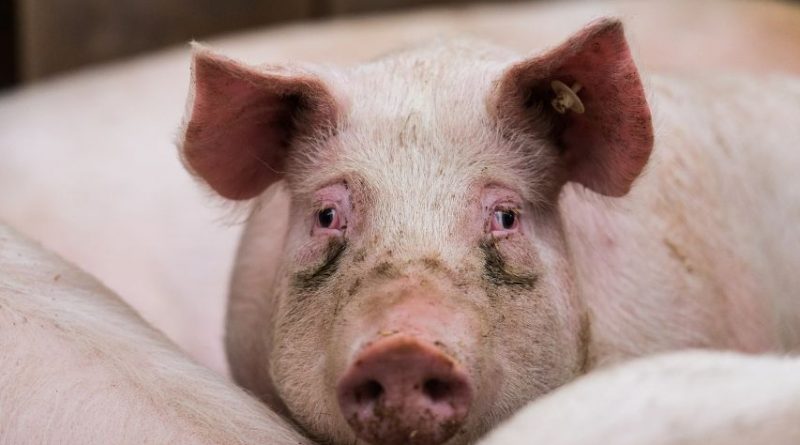Detectan cerdos con peste porcina africana en Alemania
BERLÍN.- La peste porcina africana (PPA) fue detectada por primera vez en cerdos de granja en Alemania, informó hoy el Ministerio germano de Alimentación.
Pruebas de laboratorio constataron el virus en un establecimiento ecológico que cría unos 200 cerdos y en una finca pequeña con apenas dos animales, ambos en la región de Brandeburgo, en el noreste del país, que colinda con Polonia. Todos los animales afectados serán sacrificados.
«Ahora es importante que encontremos rápidamente la causa de la propagación (de la peste) en los cerdos para saber qué ruta ha seguido el virus», comentó la ministra de Salud del estado de Brandeburgo, Ursula Nonnemacher.
«El hecho de que los casos se hayan detectado con rapidez demuestra que la vigilancia de las infecciones en animales está funcionando», añadió.
El virus de la peste porcina está presente en Alemania desde hace casi un año pero hasta ahora solo se había observado en jabalíes. En Brandeburgo, los casos en cerdos salvajes rondan los 1.270, según datos del Ministerio.
Los ganaderos temen desde hace tiempo que la enfermedad, que se extendió en Alemania a través de su frontera oriental, se propague de los animales salvajes a los cerdos de granja.
Por ello, los estados de Brandeburgo, Mecklemburgo-Pomerania Occidental y Sajonia construyeron una valla de protección de unos 670 kilómetros de longitud que los separa de Polonia y Europa del Este. Se está planeando una segunda valla.
La peste porcina no es peligrosa para los humanos. Sin embargo, para los cerdos, este virus altamente contagioso suele ser incurable y mortal. Hasta ahora, no hay ninguna vacuna, según la Organización Mundial de Sanidad Animal (OIE).
Originaria de África, la PPA se ha extendido a partes de Asia y Europa en los últimos años.
El año pasado, Japón, China, Corea del Sur y Singapur prohibieron las importaciones de carne de cerdo alemana tras confirmarse un caso de PPA en el país.
China ha estado luchando contra su propio brote de peste porcina africana desde finales de 2018, que ha provocado la muerte de más de 100 millones de animales, haciendo subir el precio de la carne de cerdo y las tasas de inflación en el país.
African Swine Fever Spreads From Wild Boar to German Farm Pigs for First Time
- Disease had previously been confined to wild boar near Poland
- Discovery may be blow in bid to reopen pork export markets
Germany confirmed cases of African swine fever at two pig farms, the first time the disease has spread from wild boars in the country and a potential further blow to exports from Europe’s top producer.
ASF — which is deadly to pigs — was found in Brandenburg near the Polish border. About 200 animals will be culled at two locations after a laboratory confirmed the cases, Brandenburg’s consumer protection ministry said. Veterinary authorities are on site to try to contain the outbreak.
The disease remains a significant distance from the northwest, where the country’s pig farming is concentrated. But it could prove a setback for Germany’s bid to revive pork exports. Numerous importers shunned its meat after an outbreak began in wild boar last year, leaving supply piling up in Europe. While some have since reopened, German pork remains shut out of China, the world’s top consumer.
It’s difficult to gauge how buyers may react to the farm reports, but “it’s no question that it’s not helpful,” said Tim Koch, a livestock analyst at agricultural market information provider AMI in Bonn. Trade with countries that have agreed only regional limits on German pork is still possible, although further restrictions from importers can’t be ruled out, a spokeswoman for Germany’s agriculture ministry said by email.
Traders might seek discounts on German supply, said Justin Sherrard, an animal-protein strategist at Rabobank. And some countries already limiting purchases may delay their return, said Udo Hemmerling, deputy secretary general at farmers union DBV.
Germany has found more than 1,200 ASF cases in wild boar in Brandenburg since last fall. The nearby state of Saxony has also reported about 300 cases. The outbreak appears unlikely to end soon, with infections still abundant in neighboring Poland.
Other large pork producers in Europe including Denmark and Spain remain free of the disease. The two affected operations in Germany are rather small, with one home to two pigs, the Brandenburg agency said. Producers group ISN called for calm and said the new cases won’t significantly change the situation for farmers.
“It is now important that we quickly find the cause of the entry into the pig population so that we know which route the virus took,” Consumer Protection Minister Ursula Nonnemacher said.
The virus has upended pork producers worldwide in recent years. China is rebuilding its herd after millions of pigs were lost in outbreaks, which triggered a meat shortfall and boosted global prices. Other countries in Asia and eastern Europe continue to battle the disease.
German pig-carcass prices have picked up from record lows set in 2020 as it was able to sell some of its excess supply within the European Union. A backlog of livestock due to coronavirus outbreaks at abattoirs has also abated.
Still, pig prices have held below cost-covering levels for farmers, according to ISN. The country’s pork sales outside the bloc are running at less than half last year’s pace, government data show. By Megan Durisin and Stefan Nicola

